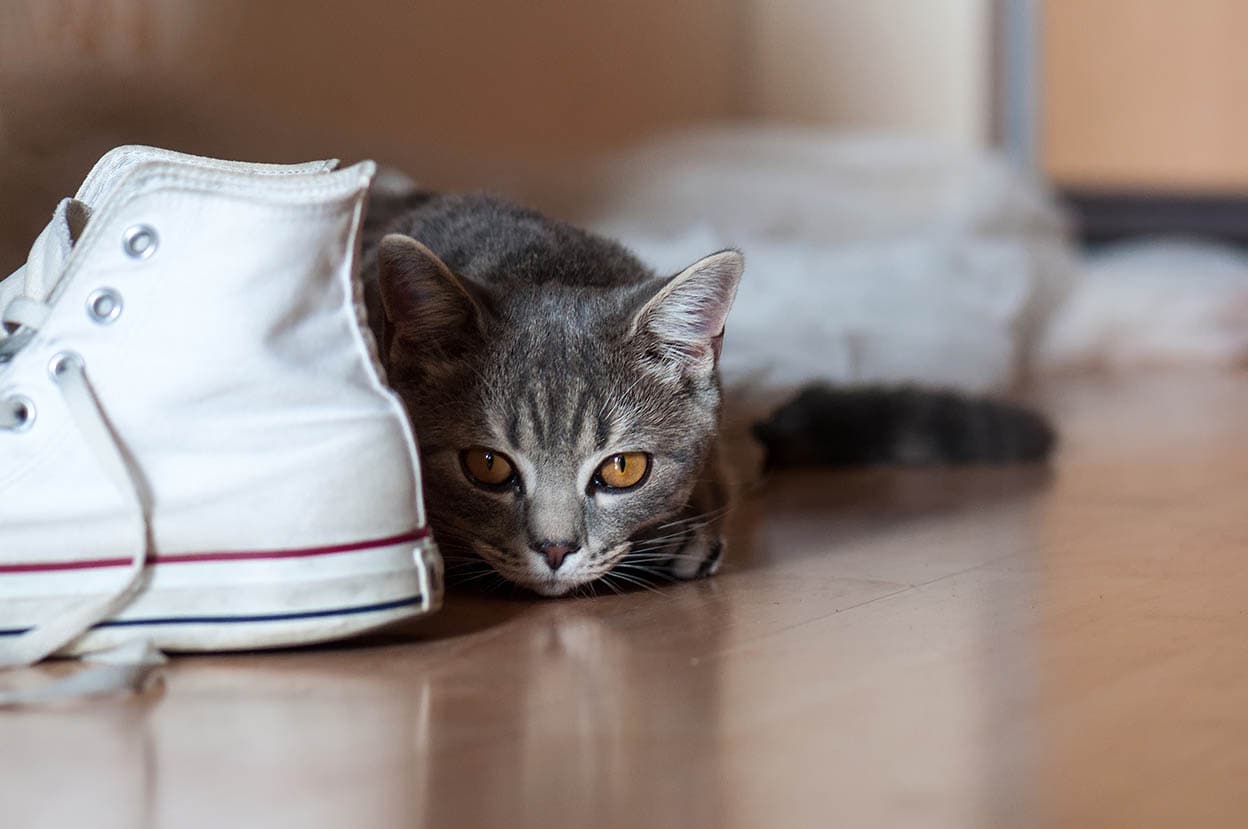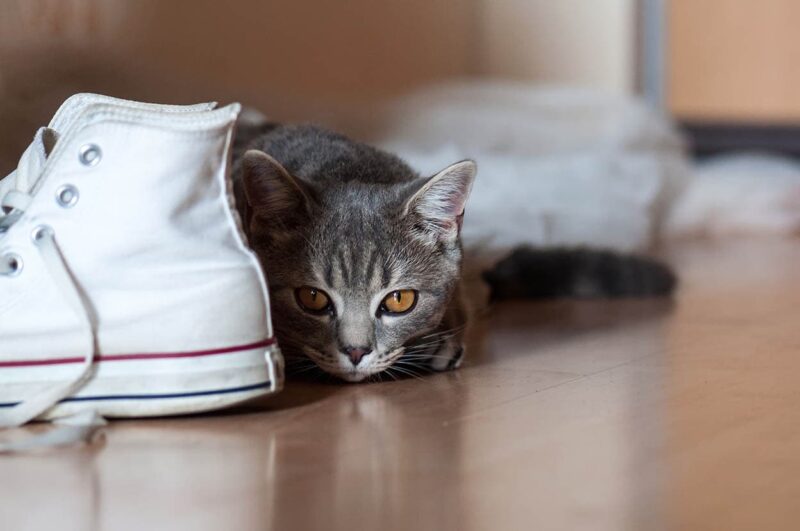Click to Skip Ahead
If you’ve felt like you’ve observed your cats having a strange obsession with your shoes, it might not just be in your head. The reality is, that many cat owners have noticed this same behavior. Since it’s happening with cats across multiple households, it can’t be a fluke, can it?
Sometimes, it’s hard to judge our pets’ behaviors. We don’t speak their language and they don’t speak ours, so communication can be difficult. What we can do is watch and pay attention to clues that can offer some insight into how our pets are thinking and feeling. Of course, science also has its place, and it can offer an even deeper look into the minds of our cats.
Let’s dive into the subject of shoes and see if we can figure out why cats seem to love them so much.
Do Cats Really Like Shoes?
So, do cats really love shoes as much as people think, or is this just some type of misinterpreted signal? As it turns out, cats do have an attraction for shoes. But it’s not necessarily the shoes that cats are attracted to. Instead, cats are attracted to what the shoes represent.
Many cat owners have noticed this same behavior, though sometimes it can apply to objects other than shoes.
The 3 Reasons Your Cat Seems to Love Your Shoes
Why do your cats seem so attracted to your shoes? It comes down to three main reasons.
1. Olfactory Familiarity
Cats have the same senses we do, but for a cat, smell is a far more important sense than it is for us. In fact, it’s probably the most important sense for a cat, and a cat’s sense of smell is approximately 14 times stronger than a human’s. This is partly because they have twice as many olfactory receptors. Furthermore, cats have an entire organ related to scent that humans lack, known as the Jacobson’s organ or the vomeronasal organ.
Essentially, what this organ does is allow cats to taste scents, providing extra information from each smell that we’re not privy to.
Since scent is so important for a feline, they use it to judge a lot of things. They’re naturally attracted to new smells and will seek them out for investigation. Moreover, cats will constantly search for scents that are familiar to them. Naturally, your shoes, which you wear most of every day, are strongly imprinted with your scent. Your scent is clearly familiar to your cat—a major reason that cats seem so attracted to our sneakers.
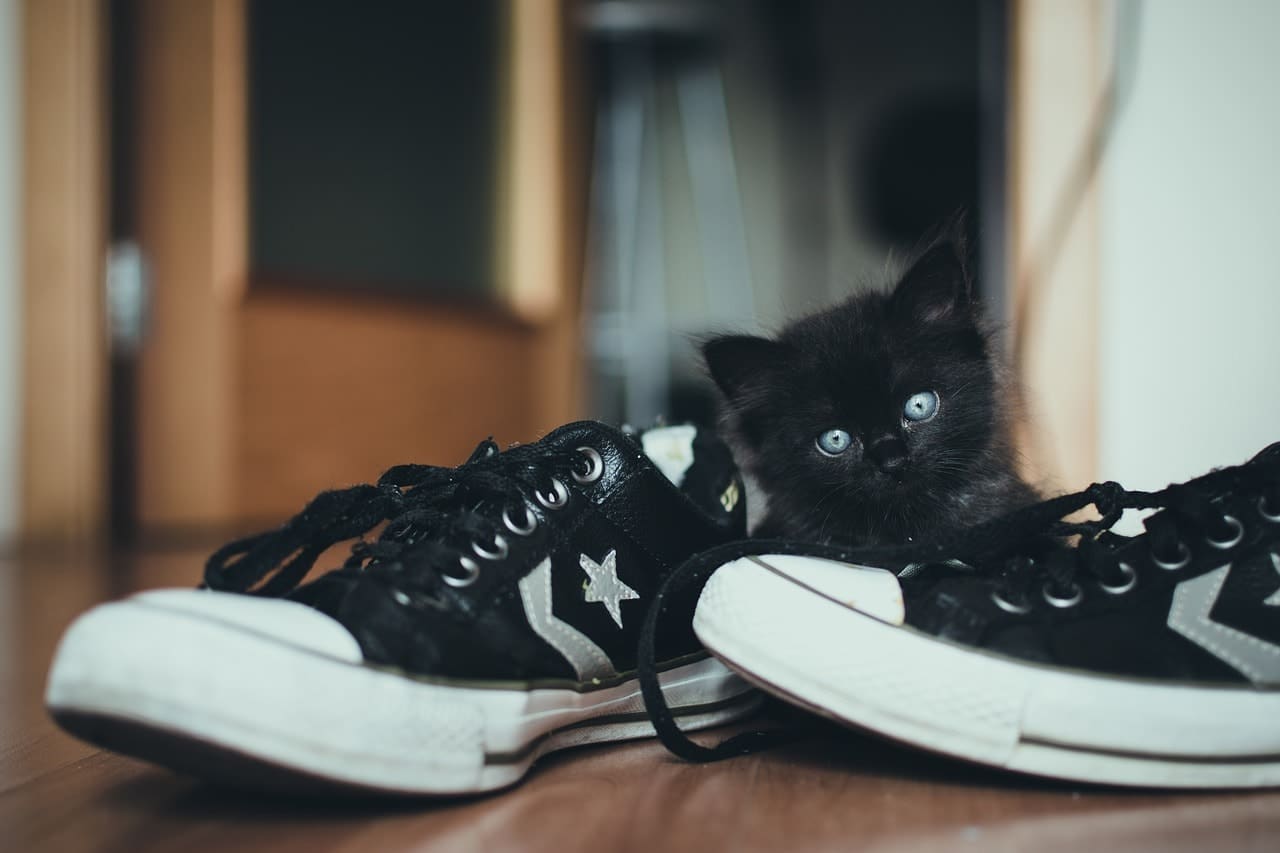
2. Comfort Equals Close to You
Don’t start thinking your cat is enamored with your shoes as a way to show you love. Having evolved alongside us, house cats are soothed by the presence of their person. Even if you’re not directly there, your scent can be a satisfactory substitute. So, your cat could very well be sleeping on your shoes as a way to feel like it’s close to you. This will keep your cat calm, particularly at times when it’s stressed.
Because of this, it’s not uncommon to see cats displaying the same behavior with other items you use regularly, such as clothing, blankets, or your favorite piece of furniture.
3. Marked Territory
Everyone knows that dogs mark their territory. It’s very obvious when they do. But cats also mark their territory, though, often, in a far less impactful way. Cats have glands throughout their bodies that produce pheromones uniquely scented to your cat. Every time your cat rubs its face against an object, a behavior known as bunting, they’re essentially marking that item with their scent.
Anything your cat marks in this manner becomes comfortable and your cat will gravitate back to it. Once your cat marks your shoes with its scent, they carry not only your specific smell but your cat’s odor as well, making those shoes seem doubly attractive.
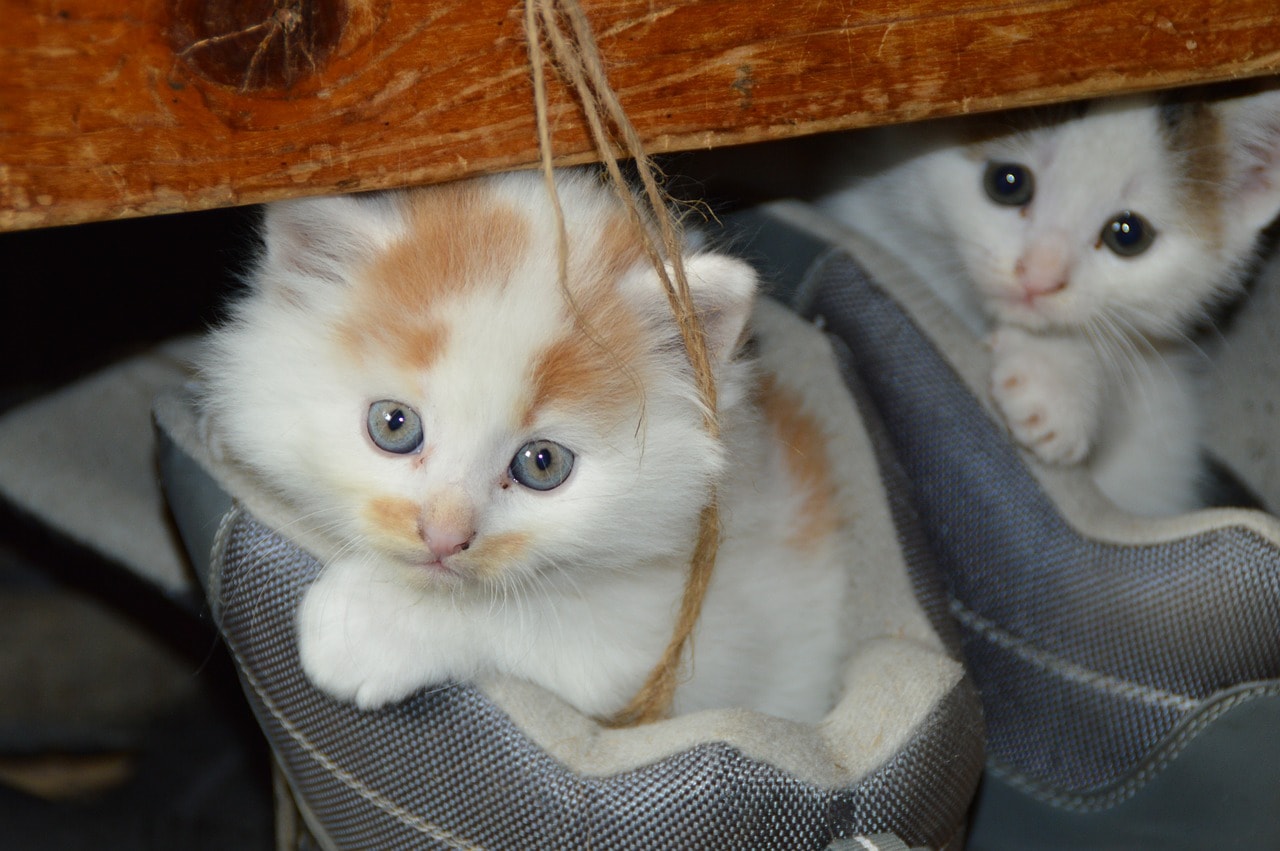
How to Take Your Shoes Back
There’s nothing wrong or unhealthy about your cat being so attracted to your shoes. If you don’t mind the behavior, then there’s no reason to stop it. But if you’re tired of your shoes always smelling like a cat and being covered in your cat’s hair, there are some simple solutions you can use to cease the behavior.
Store Them Out of Reach
The first and easiest method to stop your cat from always laying on your shoes is to store your shoes out of reach. You can put them in a closet, cubby, or anywhere else that your cat will have a hard time getting to. Be aware that your cat might just look for a new object with similar scents, so it might switch from your shoes to your sofa or your dirty laundry.
Provide an Alternative
If you really can’t stand cat hair on your shoes but don’t mind the behavior otherwise, then you can offer your cat an alternative. Maybe give them an old pair of shoes you don’t wear anymore or find some other item that can take the place of shoes altogether.
As long as it smells like you and your cat can leave its scent on the item, just about anything can make a workable replacement for your shoes.
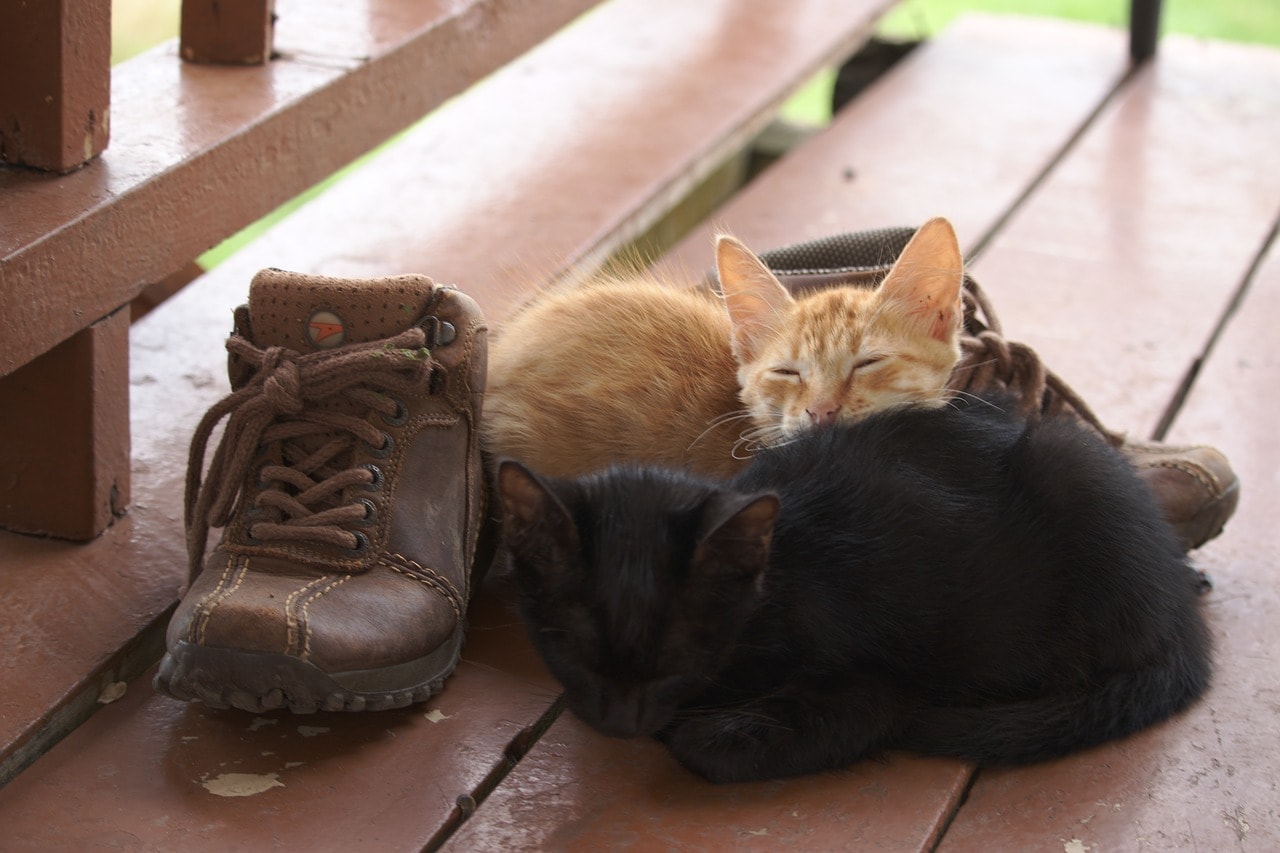
Conclusion
It might seem strange how obsessed your cat is with your shoes, but once you understand the reasons for this attraction, it doesn’t feel like such a strange behavior anymore. Granted, you still may want to stop this behavior since it’s always leaving your shoes covered in hair and smelling like a cat! But if you don’t mind that, it’s a harmless behavior that there’s no reason to stop.
Should you decide you want to keep your sneakers free of cat hair, just store them out of reach or provide a reasonable alternative to keep your cat comfortable and occupied.
See Also:
- Why Do Cats Like Feet? 8 Interesting Reasons
- Why Do Some Cats Like Earwax? Reasons for this Behavior
Featured Image Credit: horvathta, Shutterstock

